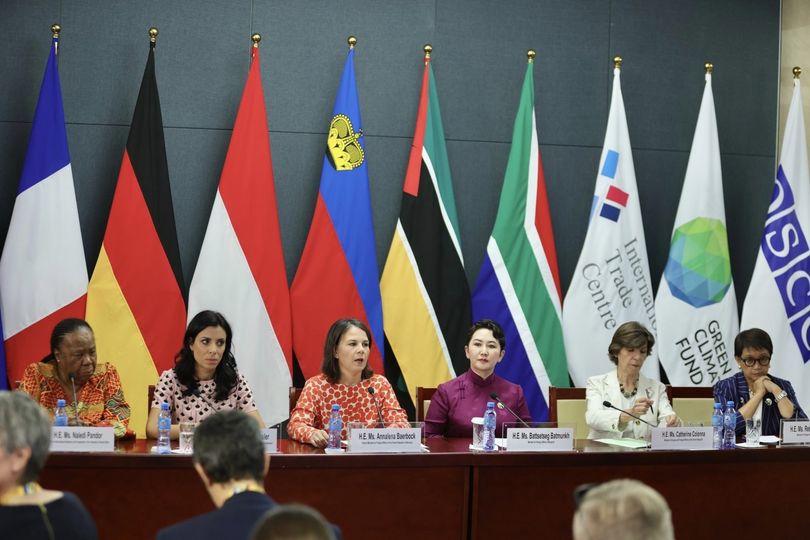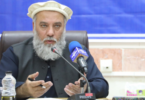KABUL (Khaama Press): The Foreign Ministers of six countries have urged the de facto authorities to promptly lift policies and practices restricting Afghan women and girls from exercising their human rights and fundamental freedoms.
A historic meeting of female foreign ministers from South Africa, France, Germany, Indonesia, Liechtenstein, and Mongolia was held at Ulaanbaatar, Mongolia, on Thursday and Friday.
“We call for the full, equal, meaningful, and safe participation of women and girls in Afghanistan,” stated a joint statement.
“We call upon the Taliban to swiftly reverse the policies and practices that restrict women and girls from enjoying their human rights and fundamental freedoms, including access to education, employment, freedom of movement, and their full and equal participation in public life.”
Meanwhile, the Foreign Ministers also urged “all states and organizations to use their influence, in accordance with the United Nations Charter, to promote an urgent reversal of these policies and practices.”
This comes at a time when secondary schools have been closed to girls since the Taliban took control of power in August 2021, and women have been banned from attending universities and working for aid agencies since last December.
The international community and regional countries have massively criticized the suppressive policies; however, the Taliban government still has not lifted the restrictions on women’s education and fundamental rights.
The Taliban has recently claimed that women in Afghanistan are given a “comfortable, prosperous life” amid allegations of deteriorating conditions.
The Taliban leader, Hibatullah Akhundzada, in an Eid message, said that under the rule of the Taliban, concrete measures have been taken to save women from many traditional oppressions, including forced marriages, and “their Sahria rights have been protected.”
While the Taliban have restricted media freedoms and prohibited women from using public facilities like gyms and parks, in addition to deepening a humanitarian crisis, the restrictions have sparked a heated international backlash, further isolating the country at a time when its economy is in freefall.







